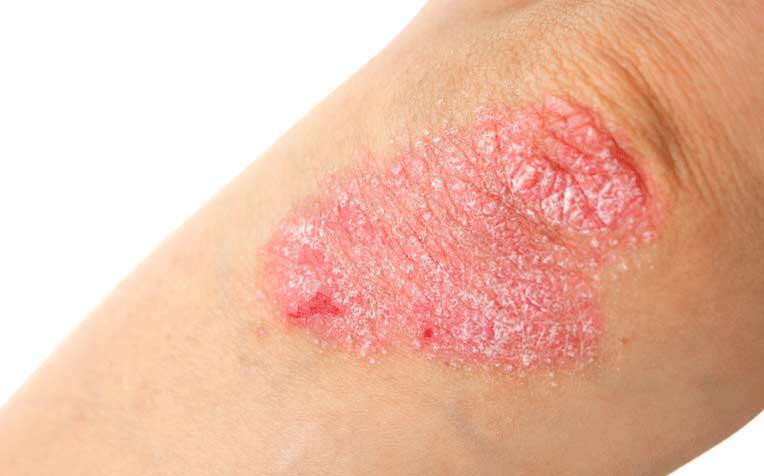HealthXchange will NEVER ask you to transfer money over a call. If in doubt, call the 24/7 ScamShield helpline at 1799, or visit the ScamShield website at www.scamshield.gov.sg.
Psoriasis Treatment: Tips to Prevent Relapse
Medically Reviewed
Psoriasis symptoms , if not too severe, can be controlled using a combination of coal tar shampoo or creams, various ointments and creams, and vitamin D drugs.
Avoid triggers and lead a healthy lifestyle to prevent psoriasis relapse
Psoriasis is a chronic non-infectious skin condition which can’t be cured.
It affects one to two percent of the population. Although more commonly seen in adults, it can also occur in children and teenagers.
Both genetic and environmental factors contribute to the development of psoriasis.
Many patients have a family history of psoriasis. Environmental triggers include certain medications, infections (eg. stretococcal) and skin trauma. Flares of psoriasis have been linked to physical and emotional stress.
Most cases of psoriasis are mild and localised. However, some (although rarely) may have severe and extensive disease.
Symptoms, particularly in mild cases, can be controlled with topical creams, ointments and medication.
“Avoiding triggers such as stress, and leading a healthy lifestyle, can also prevent a relapse of psoriasis symptoms,” shares Clinical Associate Professor Pang Shiu Ming, Senior Consultant from the Department of Dermatology at Singapore General Hospital (SGH), a member of the SingHealth group.
How to treat psoriasis
For mild and moderate psoriasis
Skin trauma and friction should be minimised. Skin should be well moisturised with regular emollients. This should be applied on the whole body.
Topical treatments include:
- Coal tar preparations (cream or shampoo)
- Dithranol cream/ointment
- Salicylic acid ointment
- Corticosteroids cream/ointment
- Vitamin D-type drugs such as calcipotriol and calcitriol cream/ointment
- Fixed dose combination of corticosteroid and calcipotriol ointment/gel
- Fixed dose combination of corticosteroid and salicylic acid ointment
For severe psoriasis
More severe psoriasis may require treatment with phototherapy using ultraviolet light 2-3 times a week for a period of several weeks to several months.
Phototherapy can produce side effects such as dryness and burns on the skin, and increases the risk of skin cancer.
Although phototherapy with ultraviolet light is used in the treatment of psoriasis, you are advised to take care to protect yourself from the damaging effects of the sun.
Persistent psoriasis may require oral and/or injectable medication as well as topical creams and ointments.
Since oral and injectable medication presents risks to internal organs such as the kidney and liver as well as the immune system, this psoriasis treatment needs to be closely monitored.
“Psoriasis treatment involving oral and injectable medication and phototherapy can have side effects and the patient needs to be monitored with regular blood tests and follow-up visits,” says Clin Assoc Prof Pang.
Ref: L20
Related articles:
Psoriasis: How to Prevent Flare-ups
Related Articles
Public Events
Get the Health Buddy App
© 2025 SingHealth Group. All Rights Reserved.


















 Get it on Google Play
Get it on Google Play